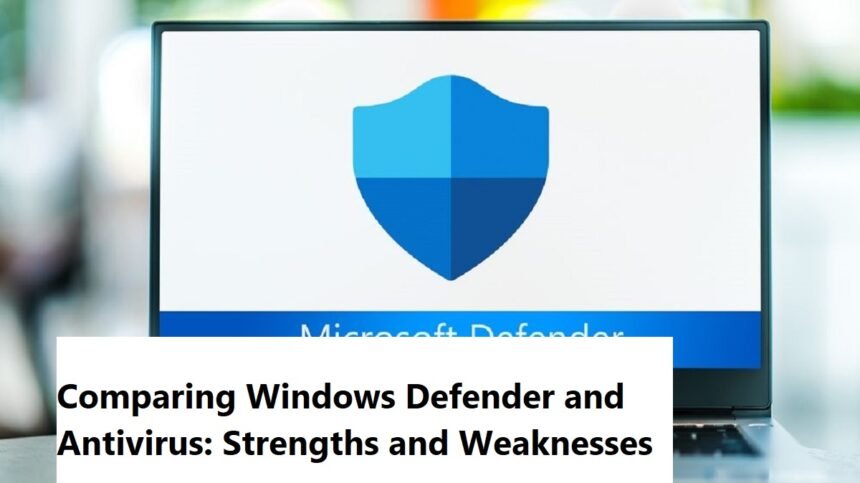1. Effectiveness in Malware Detection
Windows Defender: Over the years, Windows Defender has become highly effective, especially with continuous improvements in its malware detection algorithms. Independent tests, such as those from AV-Test and AV-Comparatives, have shown that Windows Defender consistently ranks among the top free security solutions in detecting malware, spyware, and ransomware.
Third-Party Antivirus: Many third-party solutions tend to perform slightly better in detecting complex threats due to dedicated research teams and frequent updates. They often include advanced heuristics and behavior-based detection that can catch newer or more sophisticated malware.
Bottom line: For average users, Windows Defender offers sufficient protection, but custom or advanced threats may require the added capabilities of premium antivirus software.
2. System Performance and Impact
Windows Defender: Known for being lightweight, Windows Defender integrates seamlessly with Windows OS, running efficiently in the background without significantly slowing down your system.
Third-Party Antivirus: Some third-party tools can be resource-intensive, especially during scans or updates, which may impact system performance. However, many modern solutions optimize their performance to minimize disruption.
Bottom line: Windows Defender is typically more unobtrusive, making it suitable for users with less powerful hardware.
3. Features and Additional Protections
Windows Defender: Provides essential features like real-time scanning, firewall protection, and ransomware protection. However, it lacks some advanced features like VPN services, secure browsing tools, or password managers unless integrated via Windows security updates.
Third-Party Antivirus: Offers extensive features such as VPN access, identity theft protection, parental controls, secure browser extensions, and more, giving users a more comprehensive security suite.
Bottom line: If you need extra functionalities beyond basic malware protection, third-party solutions may be a better option.
4. Cost and Accessibility
Windows Defender: Completely free and built into Windows, requiring no additional purchase or installation.
Third-Party Antivirus: Usually involves a subscription fee, but often provides trial versions and multiple device coverage.
Bottom line: For cost-conscious users, Windows Defender provides excellent value without extra expense.
5. Ease of Use and Reliability
Windows Defender: Known for its user-friendly interface and straightforward operation, especially for Windows users.
Third-Party Antivirus: Some solutions offer more customizable settings and detailed reports, which can be beneficial for tech-savvy users but overwhelming for beginners.
Bottom line: Both options are reliable, but Windows Defender’s simplicity appeals to casual users.
Which Provides Better Data Protection?
The answer depends on your specific needs:
- Casual users and standard protection: Windows Defender is highly capable of safeguarding your data against common threats. Its seamless integration with Windows makes it a dependable default choice.
- Power users and those with sensitive data: For more advanced protection, especially against sophisticated attacks or targeted threats, a reputable third-party antivirus with extra features may provide better security.
- Cost considerations: Windows Defender offers excellent protection at no cost, while premium solutions require investment but include additional security layers.
Final Thoughts
In most cases, Windows Defender offers robust, free protection that is sufficient for everyday computing. It has evolved to a level comparable with many paid antivirus solutions, especially for users with basic security needs. However, if your work involves handling sensitive data, online banking, or frequent downloads of unknown software, investing in a premium antivirus might afford you extra peace of mind.
Always remember that no antivirus can guarantee 100% security. Combining robust security tools with cautious online behavior is the best strategy to protect your data and devices.












